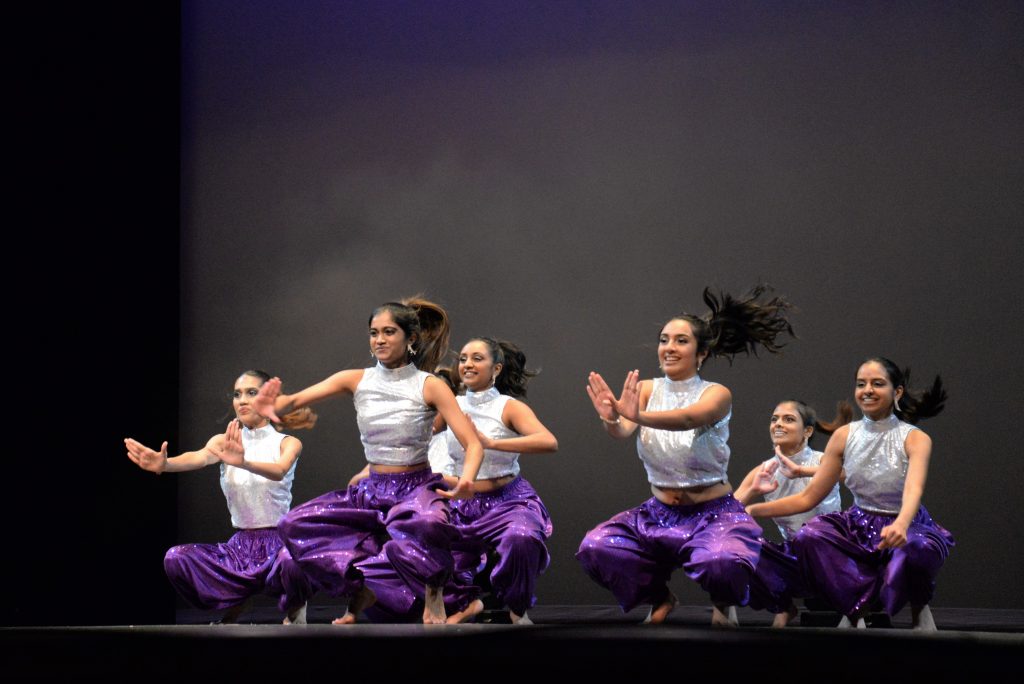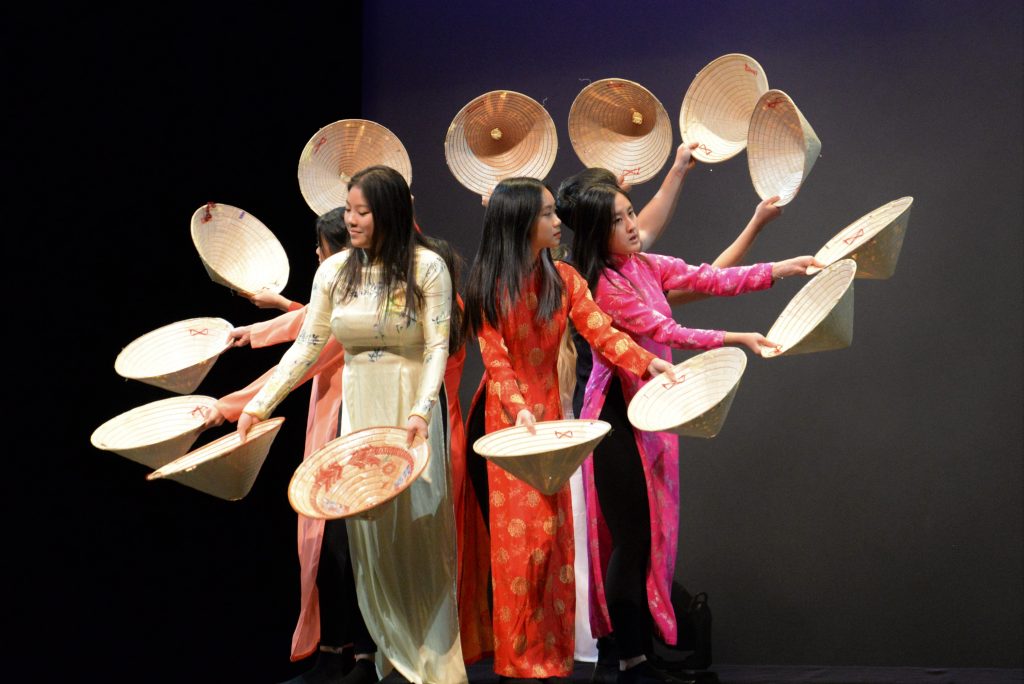
On Saturday night, the Osterhout Concert Theater was packed full of people eager to witness the first in-person Asian Night since the COVID-19 pandemic began. Hosted by the Asian Student Union (ASU), Asian Night is ASU’s largest annual celebration that showcases various cultural performances by several member groups, along with other students from the Asian American community on campus. This year, the event was three hours long and featured a skit, rapping, dancing, drumming, a diabolo routine, a light show and a guest appearance by Sarah Kang.
While the show displayed a plethora of diverse cultural demonstrations, it also emphasized an underlying theme of “planting seeds.” In a letter, the event coordinators said their inspiration for the theme came from the “Binghamton Stop Asian Hate Crimes Rally” last spring.
“[We chose this theme] because we’ve watched our beloved upperclassmen plant their own seeds in the community through the [“Binghamton Stop Asian Hate Crimes Rally”] and in their everyday mentorship and leadership toward us,” the letter said. “We want to make sure that those seeds they have planted grow into lasting legacies and hope that we can plant seeds of our own. Their work here isn’t done, and it’s our job to make sure that we keep pushing for positive change.”
Hong Hui Yu, the president of Chinascope and a senior majoring in political science, resonated with the impact left by the “Binghamton Stop Asian Hate Crimes Rally.”
“As one of the many people that organized and helped to bring the rally to life, I know how hard everyone behind the scenes worked,” Yu said. “[The part where] the video of the rally was played, it hit me the hardest — all the memories, hardships and successes we went through [at the time] all rushed back to me.”
On the theme of planting seeds, Yu interpreted the message as “[continuing] the process of advocating, voicing and standing up for our community.”
“The rally that happened last year was the seed that we’ve planted, but that is merely the beginning,” Yu said. “The seed would need the care of everyone [in order to] grow into a tall tree.”
The night started off with a scene from a skit, which was about Lilla, a student who wants to make a difference but feels powerless to do so without her significant other. However, with the help of her friend and a sentimental journey to the past, Lilla rediscovers her passion.
In between scenes, the audience was met with entertaining demonstrations, including the Binghamton University Japanese Association’s (BUJA) traditional fisherman dance, the Vietnamese Student Association’s (VSA) fan and hat dance, Binghamton Masti, Sul Poong’s traditional Korean drumming, the Philippine-American League’s (PAL) traditional tinikling dance with a modern twist, a diabolo routine by Jeremy Lai, a junior majoring in mechanical engineering, the Asian Outlook’s (AO) rap, Binghamton Bhangra’s modern take on Punjabi folk dance, Binghamton Flow Arts Club’s light show, the Chinese American Student Union’s (CASU) step routine — not to mention the intern dance — as well as the Taiwanese American Student Coalition’s (TASC) ribbon and fan dance. Other exhilarating performances included dances from MODA X, Binghamton Paradox and the Korean American Student Association (KASA).
 Megan Patterson/Contributing Photographer
Megan Patterson/Contributing PhotographerCherie Qu, a sophomore majoring in integrative neuroscience, expressed her enjoyment in watching all of the performances.
“Although I personally wasn’t involved in the making of any of the performances, I felt a sense of pride,” Qu said. “I felt proud that the people performing their cultural music and dances were so passionate.”
Qu also spoke on the theme of “planting seeds.”
“I think the message is very well fitted for the current times because ever since the onset of COVID-19, everyone has begun to appreciate their cultural background/traditions and hard work laid out by immigrants,” Qu said. “We are learning to respect and love our cultural heritage because it is a connection that we all share, so in a way it helps you connect with those around you. Planting seeds highlights the sense of duty we to have to preserve and pass on our culture’s national identity, its history and values.”
The last performance was a guest appearance by musician Sarah Kang, who serenaded the audience with her graceful, soothing voice, with Takahiro Izumikawa on the piano. Kang, a Korean American jazz/soul/R&B artist, sang some of her hits such as “Summer Is for Falling in Love,” which has over 3 million streams on Spotify, “maybe,” “now i know” and “Fall for You.” The singer-songwriter also made sure to express her gratitude and even gave some words of advice in the preface of each of her songs.
To conclude the night, ASU’s event coordinators paid homage to the theme behind this year’s Asian Night, followed by a speech from the president.
After the show, Hubert Zhou, one of the event coordinators of ASU and a sophomore majoring in integrative neuroscience, spoke on the event’s theme.
“Planting seeds is basically about leaving your mark, planting seeds and helping those seeds grow into something more,” Zhou said.
Dechen Pema, the other event coordinator of ASU and a sophomore majoring in business administration, highlighted this as well.
“Obviously Asian Night is run by ASU, but I think it’s just as much the performers’ event,” Pema said. “[Asian Night is] less of a celebration of just ASU by itself but more so of the Asian and Asian American community.”
Even though Zhou and Pema started planning in August, one of the major challenges they said they faced was inexperience — neither one had attended an in-person Asian Night in the past. However, with the help of their senior advisers and other members of ASU, they were able to plan and host a memorable night.



